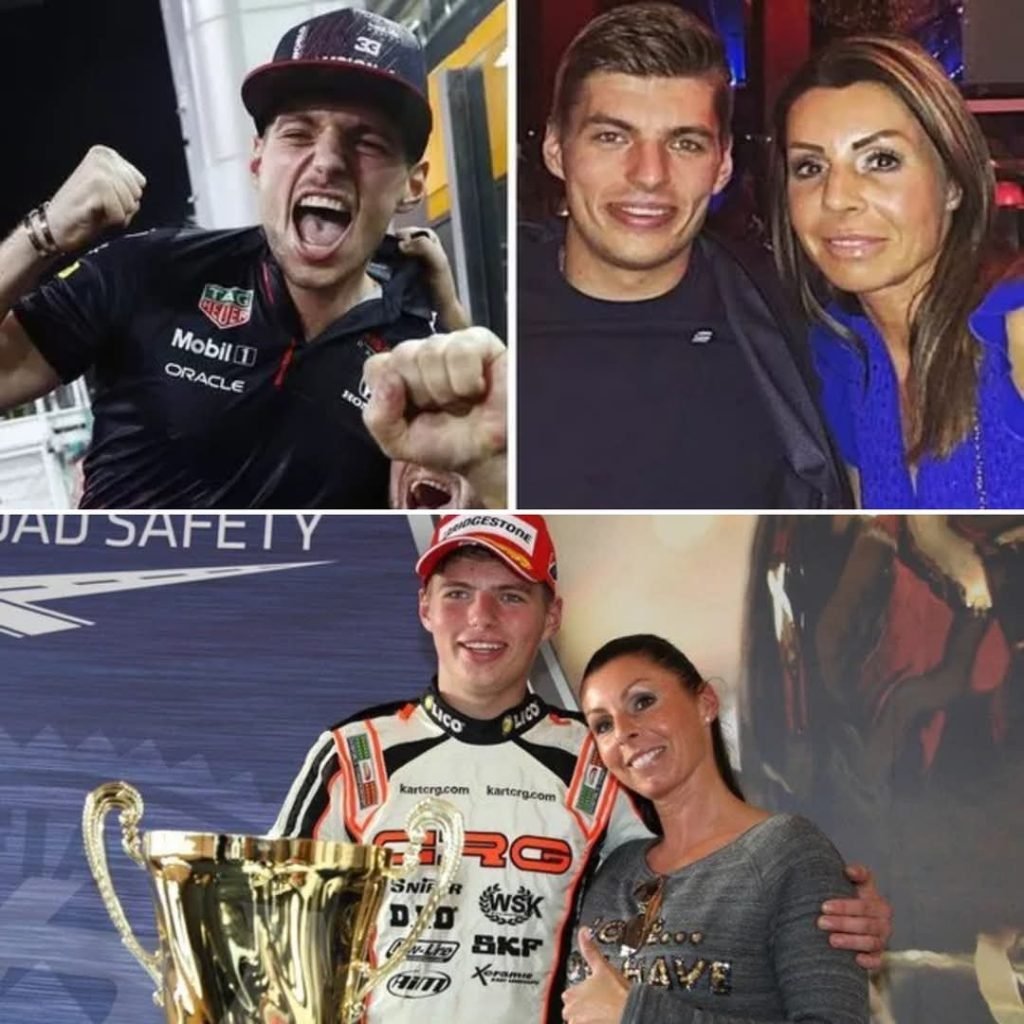
Max Verstappen’s victory at the United States Grand Prix wasn’t just another chapter in his streak of dominance — it was a masterclass in precision and control that solidified his reputation as one of Formula 1’s all-time greats. The reigning world champion’s performance at the Circuit of The Americas showcased his trademark composure under pressure, converting pole position into a seamless win. Yet, amid the noise of engines and celebration, it was his mother, Sophie Kumpen, whose words reverberated through the paddock. With heartfelt conviction, she declared that Max had proven “why he was born to be a four-time world champion.”
Kumpen, herself a decorated karting driver, has long been a quiet yet pivotal force behind her son’s relentless rise. Watching him dismantle his rivals in Austin, she expressed unfiltered pride, calling his performance “unstoppable.” Her statement reflected more than maternal admiration — it was recognition of the discipline, endurance, and mental toughness forged from years of sacrifice. In her eyes, Max’s precision on track is not just skill honed by experience, but the natural expression of someone destined for greatness, a racer sculpted by both genetics and grit.
Her words added emotional weight to a weekend already steeped in triumph. Verstappen’s racecraft, his tactical management of tire wear, and his ability to repel challenges from the McLarens encapsulated everything that makes him an indomitable competitor. Kumpen’s comments carried the authority of someone who knows the sport’s brutal demands — the early mornings at karting circuits, the psychological toll of pressure, and the lifelong commitment required to reach such rarefied air. For her, this wasn’t merely a victory lap — it was confirmation that her son’s dominance is not coincidence, but destiny fulfilled.
The phrase “born to be a four-time world champion” ignited discussions across the Formula 1 community, echoing through social media and team garages alike. To Red Bull loyalists, it symbolized an almost mythic validation of Verstappen’s talent — that no matter how fierce the competition, his mastery seems preordained. Critics, however, viewed it as an audacious proclamation, adding fuel to the psychological warfare simmering beneath the title fight. But whether seen as pride or prophecy, Kumpen’s statement reinforced a familiar truth: when Verstappen is at his peak, Formula 1 feels less like a contest and more like a coronation.
As the season barrels toward its climax, the emotional resonance of Kumpen’s declaration lingers. It serves as both a maternal benediction and a warning to his rivals — that the hunger driving Max Verstappen remains far from sated. With every race, he continues to blur the line between talent and inevitability, embodying the rare blend of mental steel and instinctive brilliance that defines generational greatness. For Sophie Kumpen, her son’s journey has never been about proving the world wrong — it’s about proving that some champions aren’t merely made by circumstance; they’re born for the spotlight.





